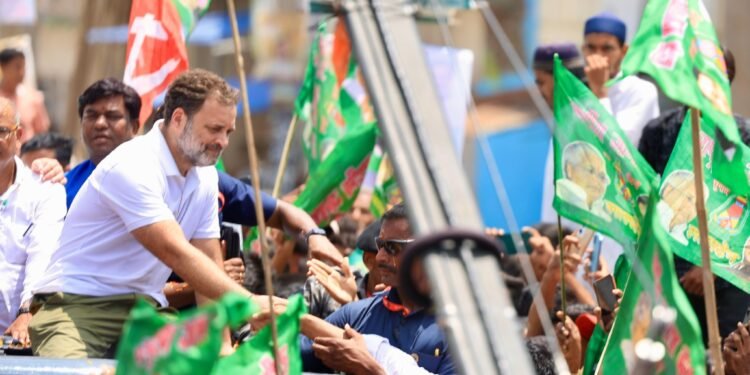NEW DELHI: India’s democracy is not under threat from the people, it is under siege from the very institutions meant to safeguard it. Nowhere is this more evident than in the conduct of the Election Commission of India (ECI).
At a recent press conference, the Chief Election Commissioner (CEC) did not resemble the impartial guardian of the electoral process, but rather the echo chamber of the ruling party. Instead of addressing substantive questions raised by opposition parties, the CEC launched attacks on critics, leaving core concerns unanswered.
Those questions were neither trivial nor partisan. Why were 65 lakh voters deleted in Bihar, a move the Supreme Court itself flagged, rejecting the Commission’s attempts to withhold basic data? Why were 70 lakh votes added in Maharashtra in just five months? Why does the ECI delete CCTV footage within 45 days, erasing crucial evidence of possible malpractice? Why were Aadhaar cards dismissed as valid ID, even as fake voters and duplicate EPIC cards multiply?
Congress MP Gaurav Gogoi summed up the opposition’s frustration: “The CEC was not able to answer any questions but was running away from its responsibility. Instead of answering, he went on attacking the opposition. How do we explain one lakh fake voters in Mahadevapura, the sudden addition of 70 lakh votes in Maharashtra, or the deletion of CCTV footage? It is clear that the ECI is under the command of partisan officials rather than non-partisan ones.”
Ram Gopal Yadav of the Samajwadi Party reminded the Commission that this problem is not new: “We submitted 18,000 affidavits back in 2022, showing that our supporters’ names had been deleted. Nothing has happened so far. Now the CEC demands affidavits again—what happened to the ones we already gave?”
From the Trinamool Congress, Mahua Moitra did not mince words: “Our party chief raised the issue of duplicate EPIC cards in February, but nothing was done. Yesterday’s press conference was a shameful display of puppetry. The CEC should leave the job of attacking the opposition to his political masters.”
Manoj Jha of the Rashtriya Janata Dal described a crisis of trust: “There is a complete erosion of faith in the ECI. The CEC deliberately chose to hold a press conference on Sunday to divert attention from the Voter Adhikar Yatra in Bihar. That says it all.”
From the DMK, Tiruchi Siva warned: “The ECI was empowered to prevent interference, but instead of giving clarifications, the CEC has raised more questions. The Commission itself has come under the scanner.”
Shiv Sena (UBT) leader Arvind Sawant echoed the charge of partisanship: “During the press conference, the CEC behaved like a spokesperson of the BJP. He had no answers as to how 70 lakh votes were added within five months in Maharashtra.”
CPI(M) MP John Brittas went further, declaring: “The CEC has forfeited his right to hold that position. He has declared war on opposition parties.”
And AAP’s Sanjay Singh pointed to statistical absurdities: “There was no logic in what the CEC said. How can 65 lakh votes be deleted in Bihar without a single new voter added? Before the Delhi Assembly polls, 42,000 votes were deleted in New Delhi constituency as well. These are facts, not allegations.”
This pattern of deflection and denial is corrosive. It feeds the perception that the Election Commission is no longer an independent referee, but an enforcer shielding the ruling party from accountability.
The erosion of faith in the ECI is not just an opposition grievance, it is a national crisis. Every deleted name, every fake voter, every erased video log chips away at the foundations of electoral legitimacy. Democracy depends not only on ballots cast, but on the public belief that those ballots are counted fairly, safeguarded honestly, and protected from manipulation.
By speaking the language of power rather than the voice of impartiality, the Commission has crossed a dangerous line. In doing so, it has not only weakened trust in itself but also cast doubt on the integrity of India’s democratic process.
The demand from opposition parties is not extraordinary. They are asking for transparency, accountability, and an end to the quiet subversion of democratic rights. These are not partisan demands, they are constitutional ones.
If the Election Commission continues to operate as a partisan institution, democracy itself becomes the casualty.
– Zorabiah Susane, WNN
WATCH, LIKE & SUBSCRIBE FOR EXCLUSIVE GLOBAL NEWS



















